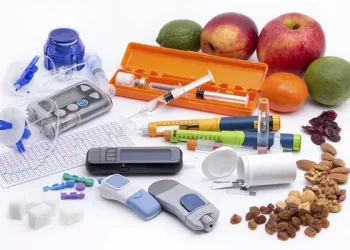Gestational diabetes requires careful dietary modifications to maintain optimal blood sugar control while ensuring proper fetal nutrition. The condition develops when pregnancy hormones interfere with insulin function, making food choices particularly crucial. Certain foods can cause dangerous blood sugar spikes that may complicate pregnancy outcomes, while others help maintain stable glucose levels. This comprehensive guide examines the specific food categories that women with gestational diabetes should avoid, explaining the physiological reasons behind each recommendation to empower informed dietary decisions during this critical period.
Refined Grains
Highly processed grains like white bread, white rice, and regular pasta undergo milling that removes the fiber-rich bran and nutrient-dense germ, leaving only the starchy endosperm. This refining process creates carbohydrates that digest extremely rapidly, converting to glucose almost immediately upon consumption. Without fiber to slow absorption, these refined grains cause sharp blood sugar spikes that the already-stressed insulin system of a woman with gestational diabetes struggles to manage effectively. Even whole grain versions should be portion-controlled, but they at least provide some fiber and nutrients that moderate the glycemic response.
Sugar-Sweetened Beverages
Regular sodas, sweet teas, fruit punches, and even many “vitamin waters” contain staggering amounts of added sugars in highly absorbable liquid form. A typical 12-ounce can of soda delivers 35-45 grams of pure sugar – the equivalent of about 9 teaspoons – without any fiber, protein, or fat to slow absorption. These drinks cause blood glucose levels to skyrocket within minutes of consumption, creating a metabolic challenge that the pregnant body may not handle effectively. Furthermore, they provide empty calories that contribute to excessive weight gain without offering any nutritional benefit to mother or baby.
Packaged Breakfast Cereals
Many seemingly healthy breakfast cereals actually contain shocking amounts of added sugars, sometimes listing multiple types of sweeteners in their ingredients. Even cereals marketed as “whole grain” often have sugar as the second or third ingredient. The typical serving size (usually 3/4 cup) provides insufficient bulk to create satiety while delivering a concentrated dose of rapidly digested carbohydrates. This combination leads to early-morning blood sugar spikes followed by crashes that can trigger cravings and overeating later in the day. The milk typically added to cereal provides additional lactose (milk sugar) that compounds the glycemic effect.
Tropical Fruits
While fruits are generally healthy, certain tropical varieties like mango, pineapple, papaya, and watermelon have exceptionally high sugar content with relatively low fiber. These fruits rank high on the glycemic index, meaning they cause more rapid and significant blood sugar elevations than other fruits. Their natural sugars (primarily fructose and sucrose) digest and absorb quickly, especially when consumed alone rather than as part of a balanced meal. The water content in some tropical fruits can also be misleading, creating a false perception of appropriate portion sizes that actually contain more sugar than realized.
Fried Foods
Deep-fried foods like french fries, fried chicken, and doughnuts combine two problematic elements for gestational diabetes management. First, they typically use refined flour for breading or batter, providing rapidly digested carbohydrates. Second, the high-temperature frying process creates inflammatory compounds and often uses unhealthy fats that can worsen insulin resistance. Additionally, fried foods are extremely calorie-dense, promoting excessive weight gain that further complicates blood sugar control. The combination of refined carbs with unhealthy fats creates a perfect storm for metabolic dysfunction in women with gestational diabetes.
Flavored Yogurts
The yogurt aisle contains many products masquerading as health foods that actually resemble desserts in their sugar content. Some flavored yogurts contain 25-30 grams of sugar per small container – equivalent to a candy bar. Even varieties labeled “light” or “low-fat” often compensate for reduced fat with extra sugar. The fruit preparations used in these yogurts typically involve sugar syrups rather than fresh fruit. Furthermore, the processing destroys much of yogurt’s natural probiotics while adding artificial flavors and colors that provide no nutritional benefit during pregnancy.
Processed Snack Foods
Packaged snack foods like chips, crackers, pretzels, and rice cakes often appear harmless but actually contain refined carbohydrates as their primary ingredient. Many varieties include hidden sugars in their seasoning blends, while others break down into glucose almost immediately during digestion. These processed snacks typically lack fiber, protein, and healthy fats that could help moderate blood sugar response. Their dry, crispy texture also encourages overconsumption, making portion control difficult. Even “baked” or “reduced fat” versions usually maintain the same refined carbohydrate base that causes blood sugar spikes.
Sweetened Condiments
Many common condiments contain surprisingly high amounts of added sugars that can sabotage blood sugar control. Ketchup, barbecue sauce, teriyaki sauce, and many salad dressings use high-fructose corn syrup or other sweeteners as primary ingredients. Just one tablespoon of some sauces can contain 4-7 grams of sugar, and most people use much larger portions. These “hidden” sugars are particularly problematic because they’re often added to otherwise healthy foods like salads or grilled meats, making it difficult to account for their carbohydrate content in meal planning.
Juice Concentrates
Even 100% fruit juices – whether freshly squeezed or bottled – represent concentrated sugar sources without the beneficial fiber found in whole fruits. The juicing process removes the pulp and skin that normally slow sugar absorption, leaving only the sugary liquid that absorbs almost as quickly as soda. While containing some vitamins, these juices deliver a large fructose load that the liver must process, potentially worsening insulin resistance. The lack of fiber also means juice doesn’t promote satiety, making it easy to consume excessive amounts without realizing the blood sugar impact.
Artificial Sweeteners
While artificial sweeteners like aspartame, sucralose, and saccharin provide sweetness without calories, emerging research suggests they may not be ideal for gestational diabetes management. Some studies indicate these sweeteners might still trigger insulin secretion or alter gut bacteria in ways that could affect glucose metabolism. Additionally, their intense sweetness can perpetuate cravings for sugary foods and distort taste perceptions. For women who need sweet alternatives, small amounts of natural options like stevia or monk fruit may be preferable, though all sweeteners should be used sparingly during pregnancy.
Alcohol
Alcohol presents multiple risks for women with gestational diabetes and should be completely avoided throughout pregnancy. Ethanol directly crosses the placenta and can interfere with fetal development, especially during critical growth periods. From a metabolic perspective, alcohol inhibits the liver’s ability to produce glucose, increasing the risk of dangerous hypoglycemia. It also provides empty calories that can contribute to excessive weight gain without providing any nutritional benefit. Even small amounts of alcohol may affect blood sugar control and should not be considered safe during pregnancy.
Fast Food Combos
Typical fast food meals combine several problematic elements for gestational diabetes management. The bun or breading provides refined carbohydrates, the sauces add hidden sugars, and the frying process introduces unhealthy fats. The oversized portions common in value meals deliver excessive calories that promote weight gain. Even salads at fast food restaurants often come with high-sugar dressings and fried toppings that negate their health benefits. The combination of these factors creates meals that are likely to cause significant blood sugar spikes while providing minimal nutritional value for mother or baby.
Conclusion
Managing gestational diabetes effectively requires eliminating foods that cause rapid blood sugar spikes while emphasizing nutrient-dense alternatives that support both maternal health and fetal development. Focus on high-fiber vegetables, quality proteins, healthy fats, and controlled portions of complex carbohydrates distributed evenly throughout the day. Regular blood sugar monitoring helps identify individual food triggers and assess dietary adjustments. Work closely with your healthcare provider and a registered dietitian specializing in gestational diabetes to create a personalized meal plan that meets your specific nutritional needs while maintaining optimal glucose control. With careful dietary management, most women can successfully navigate gestational diabetes while supporting a healthy pregnancy.





















